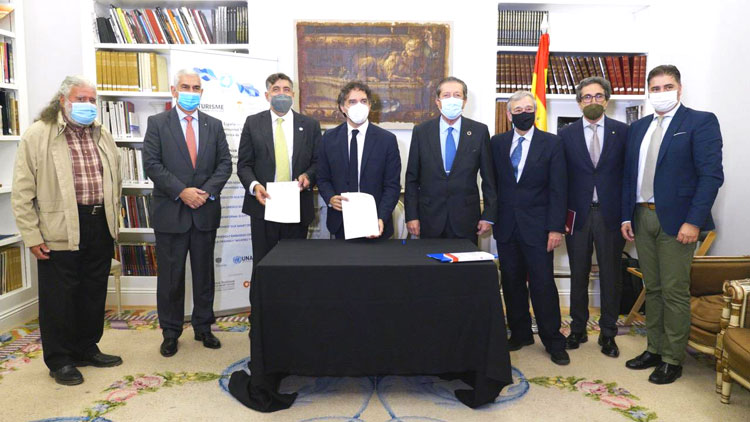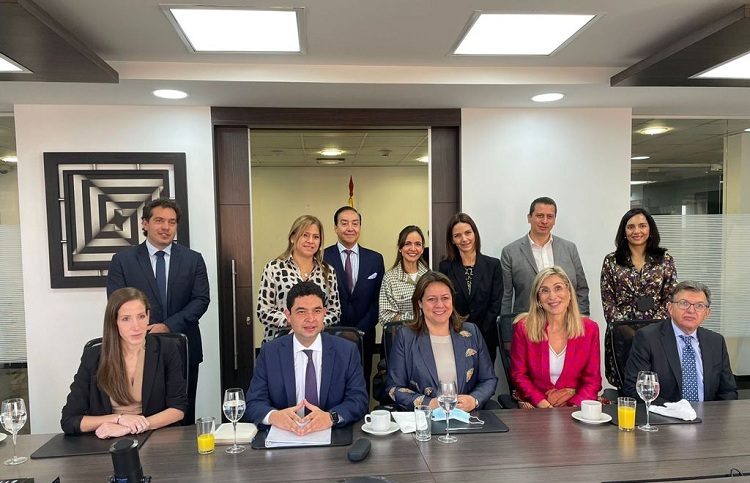The Diplomat
The Instituto Seda España (ISE) has launched the Silkfriendly Embassies Center, a virtual centre at the service of the embassies of the countries related to the Silk Roads, which will facilitate the internationalisation of all the initiatives proposed and the relations between countries.
Likewise, at the event held last Tuesday at the Real Fábrica de Tapices in Madrid, the Instituto Seda España and Turisme Comunitat Valenciana signed a collaboration agreement last Tuesday to encourage tourism promotion activities for the Silk Route product in the Valencian Community during the year 2021.
The event was attended by Federico Mayor Zaragoza, Honorary President of the Instituto Seda España-ISE, Francesc Colomer, Regional Secretary of Tourism of the Valencian Community and Fernando Molina, President of the ISE, who signed the collaboration agreement between the two entities that governs the actions of tourism promotion of the Silk Route product in the Valencian Community and articulates the nominative line of subsidy 2021, in favour of the Instituto de la Seda España (ISE). The signing of the agreement was also witnessed by the members of the Board of Directors of the ISE, José Caravaca, Enrique Gaspar and José María Chiquillo.
At the same event, the Instituto Seda España held the presentation of the First Hub of Distribution 4.0 Transnational Tourism Intelligence, which was attended by the diplomatic representation in Spain of many of the main countries of the Silk Roads, including China, Uzbekistan, Turkey, Azerbaijan, Iran, Russia, and also Europeans such as Belgium and Greece, which gave a strong international stamp to the presentation.
José Maria Chiquillo, International President of the Silk Road Platform, presented the UNESCO Digital Atlas as the necessary backbone to generate an itinerary that combines more than 58 countries with multiple themes and that not only looks to the East. As he explained, “the Silk Road of the Sea historically connects America through Mexico with Asia across the Pacific Ocean to the Philippines, with the Manila Galleon and the “tornaviaje” which was the first global route linking with Europe through Spain”.
During the presentation, Enrique Gaspar, member of the ISE Board of Directors, highlighted the importance of “having public Networks of Smart Territories, which act as competitive networks, that is to say that they collaborate and compete at the same time, networks where their members are not adversaries but true collaborators that promote the territorial cohesion of the Silk Road in which the adhering members acquire the commitment to promote a new tourism for 2030, more digital neutral and socially and environmentally responsible”.
He also invited those present to attend the 3rd Thought and Action Forum to be held on 3 and 4 November at the Casa Mediterráneo in Alicante, at the closing ceremony of which the 3rd Silk Friendly “Women and Peace Routes” 2021 Awards will be presented, which this year corresponds to projects developed on an international scale.







